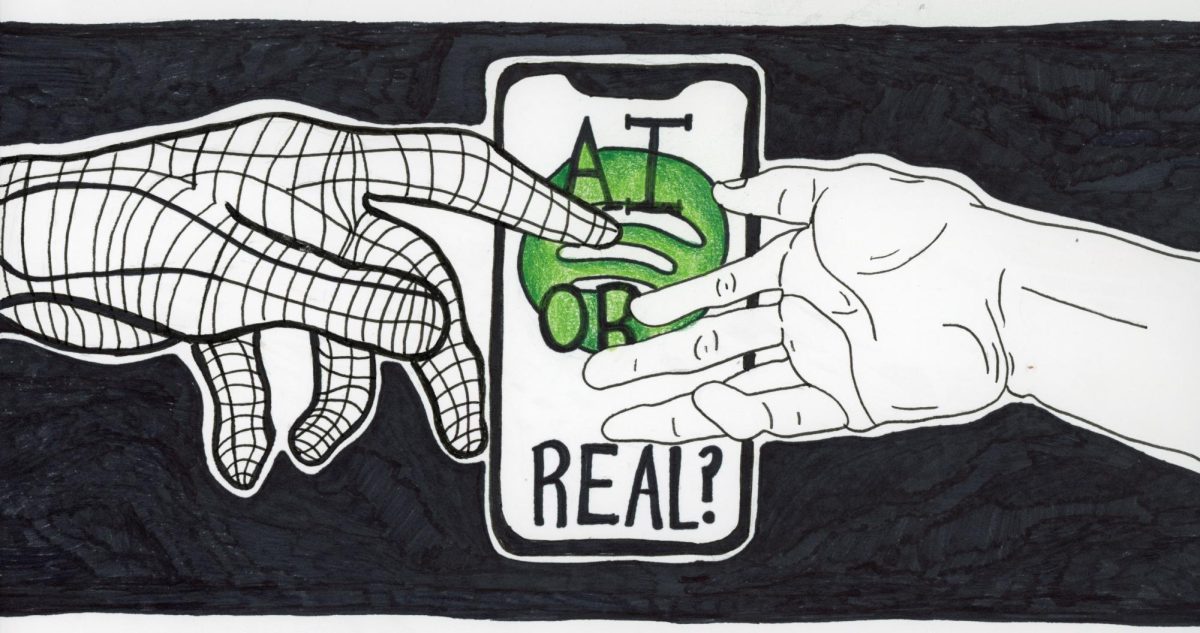While I don’t support the banning of books by any means, I believe that those currently mandated are seriously in need of review, or just scrapping some of the ‘classics’ from our curriculum in general. The majority of novels read in high school, such as “The Catcher in the Rye,” “Animal Farm,” or “1984,” have been taught in schools across the country since our parents, and in some cases, their parents, have been in school, and yet somehow we still haven’t revamped the catalog of novels we read from, or haven’t really questioned the stagnant nature of our English curriculum in general.
English isn’t really like any of the other subjects; it’s truly an outlier when it comes to content and what is learned, because most of what is learned in an English class is not information that you could just quickly Google or memorize, it’s much more metaphorical and abstract than that, but it seems that we’ve undervalued those lessons in an attempt to push kids towards more STEM-oriented subjects in the past few decades. Reading boring, old and uninteresting books to familiarize us with the classics doesn’t necessarily interest most teenagers, and while some find those old novels interesting, they’re not teaching anything new that couldn’t be more efficiently taught or more interestingly taught with a modern and more relatable version of that novel.
Twentieth century novels are the most commonly taught pieces of literature in our English classes, but newsflash, we don’t live in the 20th century anymore. Sure, most of these topics are relatable to some degree, but for many it’s difficult to fully relate to, understand, or truly grasp the characters’ situations when they’re too busy trying to understand what certain words or phrases mean. Much of the nuance and general understanding is lost, even if the teacher attempts to demonstrate it.
Of course, there is always the option to focus on the small things and build up from there, but is that guaranteed to happen? No, it’s not, and more often than not there will be a disconnect between the theme and topics within the novel and the young, inexperienced readers that are often forced to consume it.
In order to fix, or at least put a temporary bandage on the issue, I suggest that we replace some of these old and outdated novels with their more modern and relatable counterparts. For example, a replacement for the 1960 novel. “To Kill a Mockingbird,” could be the 2017 novel, “The Hate U Give.” This text would not only bring a more modern and relatable take into the classroom, but would also contextualize the prevalence of racism in our modern day society in contrast to the old and somewhat out of reach ‘To Kill a Mockingbird.’
Since the bulk of these outdated novels have been released or written, a plethora of historical events contradicting, or at least aging the themes or main points of these novels occurred, and not acknowledging that is truly unfortunate for the young readers who are supposed to be learning valuable lessons and developing different skills essential to their eventual adult lives. There are multiple events between the publishing and the modern day that change the reception of these pieces of literature quite a bit, especially when it comes to ‘To Kill a Mockingbird’ such as the Civil Rights Act being signed into law in 1964, just four years after the release of this novel, or even the March on Washington in 1963, when Dr. Martin Luther King Jr. delivered his famous “I Have a Dream” speech.
The point is, these events, happening not long after the release of the novel, already change some of what could be interpreted, such as the use of the infamous white savior model, seen in most of the main characters, becoming a more prevalent issue than before and shadowing some of the main points that the author was trying to make, which are not entirely as valuable now when we could be focusing on a novel, such as ‘The Hate U Give’ which would give us a much more modern context without the blur of the 1960s, white-tinted lens. The nonwhite characters in ‘To Kill a Mockingbird’ rely on the white “savior” who ultimately should not be the focus of a story in which one of the main themes is prejudice.
Still, it is important to acknowledge that these older novels can be valuable to us now in other ways disregarding events or outdated content, such as being culturally or educationally enriching. If you’re looking to learn about specific beliefs and thoughts within a society at a specific point in time, sure, maybe reading these novels is a wonderful way to do that, but you’re not going to gain anything new from them. I suggest replacement, and sure, that may be controversial, but if given time, I believe that the topics and themes taught in these novels will become more controversial than just replacing them. They’re books, they’ll always have value, but when there’s a chance these are the only novels a high school student will ever truly read, maybe it’s best if they really mean something to them.
Joni is attending UNO to study English







